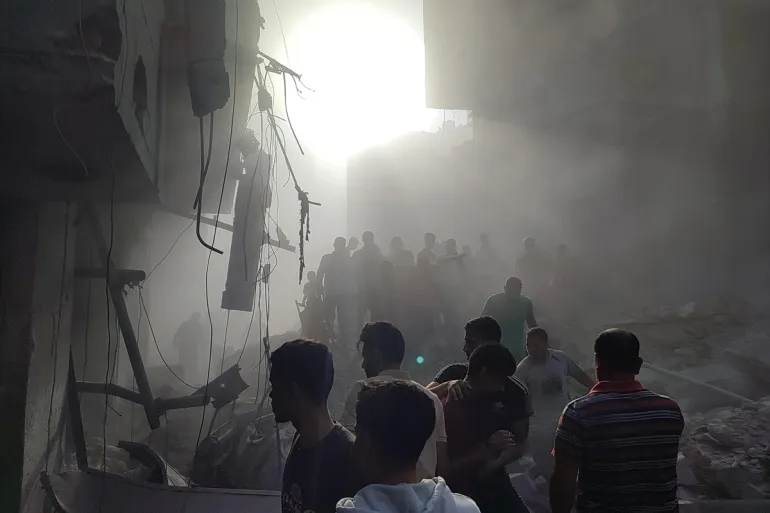THE sound of tanks rumbling through the streets outside of Kamal Adwan Hospital woke everyone up, they were already on edge after enduring months of direct Israeli attacks.
Then came the loudspeakers ordering everyone to evacuate – the sick, the wounded, medical staff, and displaced people seeking shelter – early on Friday morning.
It was clear that the medical complex in northern Gaza’s Beit Lahiya was about to face an Israeli raid, like so many had before it as Israel seemed to systematically destroy all healthcare in Gaza.
It didn’t matter that, according to the World Health Organization, the hospital was the last major health facility operational in northern Gaza, an area that has been suffocatingly besieged and decimated by Israel in its ongoing war.
Nor that it was a refuge for hundreds of Palestinians whose homes had been destroyed by Israel and had nowhere else to go.
At about 6am, patient Izzat al-Aswad heard Israeli forces summoning Dr Hussam Abu Safia, the hospital director, over their loudspeakers.
Dr Abu Safia came back and told people in the hospital they had been ordered to evacuate. Abu Safia himself, who was a rare voice exposing what Israel was doing to the hospital, was taken by Israel, which has refused to release him despite calls to do so from the UN, humanitarian NGOs and international health organisations.
A little later, al-Aswad said Israeli soldiers demanded that all the men strip down to their underwear to be allowed to leave.
Shivering, frightened, many of them injured, the men were ordered to walk to a checkpoint the Israelis had set up about two hours away, al-Aswad recounted by phone.
At the checkpoint, they gave their full names and had their photographs taken.
Then a number was scrawled on their chest and neck by a soldier, indicating they had been searched.
Some of the men were taken for interrogation.
“They beat me and the men around me,” al-Aswad said. “They hit the injured people like me directly on our injuries.”
Shorouq al-Rantisi, 30, a nurse in Kamal Adwan’s laboratory department, was among the women taken from the hospital.
The women were told to walk to the same checkpoint, which was in a school, and then waited for hours in the cold.
“We could hear the men being beaten and tortured. It was unbearable.”
Then the searches started.
“The soldiers were dragging the women by the head towards the search area,” al-Rantisi said. “[They] shouted at us, demanding we remove our headscarves. Those who refused were beaten badly.”
“The first girl called for searching was told to strip. When she refused, a soldier beat her and forced her to lift her clothes.
“A soldier dragged me by the head and then another soldier ordered me to lift the top of my clothes, then the bottom, and checked my ID,” she said.
Al-Rantisi said the women were eventually taken, left at a roundabout, and told they could not go back to Beit Lahiya.
“How could we leave and abandon the patients? None of us ever thought of leaving until we were forced to,” she said on the phone.
Israel assaulted the hospital for many weeks before the raid.
“The hospital and its courtyard were bombed relentlessly, day and night, as if it was normal,” al-Aswad said.







